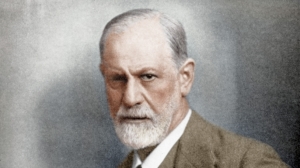That is what those committed to education must be worried about!
We live in exciting times, right? Even the kids are playing with iPads! The very small ones talk of so many things, about dinosaurs, DNA and what not!

We just now read about a news item on how pre-school kids read about fictional characters, superheroes that defend and protect the weak and inculcate positive values in children. No, they don’t read for the superheroes for their ethics, their positive traits but they, the kids inculcate just the opposite, the violent skills and, no moral message gives the new age kids their values, it is the aggressive themes, it is the bullying themes that catch their attention. What is the larger message? What is this education of today where the pre-school education is becoming a scandal, so much unethical billing, the long queues, the exorbitant fees, the exams for admission and what other bad behavior you can imagine in the money-makers racket, all these ills are there now in the pre-school education?
Of course there are other bad practices that have crept into the education system right from the bottom to the top? They are all now entrenched into the education system. We in the school journal have learnt many other current practices, the very aggressive mentality we also see, unfortunately, even in the adults, the school promoters and the school heads and also the parents itching to do everything so that they escape and succeed in life.
What a tragedy from our ill-thought out government and policies from many other sources. The point is that the prevailing politics in the country reflect in the prevailing education system. They don’t want to read anything about education and education policy making. And alas! Who are involved into education policy making? The government couldn’t care for indentifying the right people, instead they reach out to some secondary grade retired bureaucrats to make education policy for a country of India’s diversity and need for unity in terms of some larger vision and greater philosophy.
We have just now also read about the Imperial Viennese society at the turn of the 20th century. The ideas and arts and much else, sciences and humanities, from Albert Einstein to many others, from Sigmund Freud to Karl Popper and many others, the names are too many to believe in our times of such low levels, be it politics or the social outlook, so much divisions and so much Philistinism, the period of Viennese history from the late 1880s to the 1920s endured. Music and philosophy, two areas of life that symbolizes the man’s search for new truths and shapes and tones and those Viennese who escaped Nazism and went on to sustain in the West during the cold war and to restore what the author calls the traditions of empiricism and liberal democracy.

It was a Viennese century. India has much to learn from this source of light, the light of reasons and beauty in living and living up to certain visions. The Viennese century saw the world to emerge as a multi-ethnic and multi-cultural heterogeneous society. It has many lessons for as similarly placed multi-linguistic, religious and cultural society like India. India has to be a cosmopolitan society, not a monolithic, narrow tunnel society. Vienna was and hope still is city of coffee house. So a writer says “stir the hot milk into your bitter coffee, and imperial Viennese culture emerges”. So too, “dissolving of differences to produce something afresh”. Yes, this is what we need in much of our public policy making at this juncture. “To show modern man his true face”. Logical Positivism was the philosophy that pierced through much of the mumbo-jumbo, be it religion or other superstitious beliefs. Sciences and humanities encountered into new clashes and new collusions. Then was born a new sense of self-assertion and a new confidence in man. To make knowledge accessible to all was to make education and knowledge democratic.
Today in India, we can see much that is negative, calls for narrow sub nationalist causes. How to understand and act on the public perception of public men, leaders, parties and need for new sophistications in refining democratic norms and values?
These are some of the basic questions that must evoke our educational outlook.
Our education must tap the latest trends in child psychology, sociology and many other sciences so that we really aim for a new India of a progressive liberal democracy. How to live as true democratic? What should be our personal ethics? And no less our public ethics? These should be some of our basic questions when we sit down to draw our education policies? In short, the Liberal cause must be the aim of education, justice, equality and equity.
No pre-conceived dogmatism whatever might work but as the Viennese write-up calls “the lived experience of individuals” that should give our education system the vigor and character to our education.